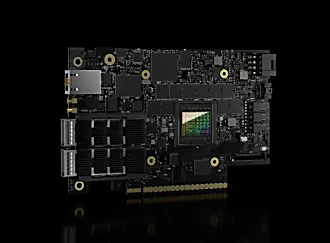Canonical
on 1 December 2016
Canonical’s Distribution of Kubernetes reduces operational friction
Linux containers (LXC) are one of the hottest technologies in the market today. Developers are adopting containers, especially Docker, as a way to speed-up development cycles and deliver code into testing or production environments much faster than traditional methods. With the largest base of LXC, LXD, and Docker users, Ubuntu has long been the platform of choice for developers driving innovation with containers and is widely used to run infrastructure like Kubernetes as a result. Due to customer demand, Canonical recently announced a partnership with Google to deliver the Canonical Distribution of Kubernetes.
Explaining Containers and Canonical’s Distribution of Kubernetes
First, a bit of background, containers offer an alternative to traditional virtualization. Containers allow organizations to virtually run multiple Linux systems on a single kernel without the need for a hypervisor. One of the most promising features of containers is the ability to put more applications onto a physical server than you could with a virtual machine. There are two types of containers – machine and process.
Machine containers (sometimes called OS containers) allow developers/organizations to configure, install, and run applications, multiple processes, or libraries within a single container. They create an environment where companies can manage distributed software solutions across various environments, operating systems, and configurations. Machine containers are largely used by organizations to “lift-and-shift” legacy applications from on-premise to the cloud. Whereas process containers (sometimes called application containers) share the same kernel host, they can only run a single process or command. Process containers are especially valuable for creating microservices or API functions calls that are fast, efficient, and optimized. Process containers also allow developers to deploy services and solutions more efficiently and on time without having to deploy virtual machines.
Ubuntu is the container OS (operating system) used by a majority of Docker developers and deployments worldwide, and Kubernetes is the leader in coordinating process containers across a cluster, enabling high-efficiency DevOps, horizontal scaling, and support for 12-factor apps. Our Distribution of Kubernetes allows organizations to manage and monitor their containers across all major public clouds, and within private infrastructures. Kubernetes is effectively the air traffic controller for managing how containers are deployed.
Even as the cost of software has declined, the cost to operate today’s complex and distributed solutions have increased as many companies have found themselves managing these systems in a vacuum. Even for experts, deploying, and operating containers and Kubernetes at scale can be a daunting task. However, by deploying Ubuntu, Juju for software modeling, and Canonical’s Kubernetes distribution helps organizations to make deployment simple. Further, we have certified our distribution of Kubernetes to work with most major public clouds as well as on-premise infrastructure like VMware or Metal as a Service (MaaS) solutions thereby eliminating many of the integration and deployment headaches.
A new approach to IT operations
Containers are only part of the major change in the way we think about software. Organisations are facing fundamental limits in their ability to manage escalating complexity, and Canonical’s focus on operations has proven successful in enabling cost-effective scale-out infrastructure. Canonical’s approach dramatically increases the ability of IT operations teams to run ever more complex and large scale systems.
Leading open source projects like MAAS, LXD, and Juju help enterprises to operate in a hybrid cloud world. Kubernetes extends the diversity of applications which can now be operated efficiently on any infrastructure.
Moving to Ubuntu and to containers enables an organization to reduce overhead and improve operational efficiency. Canonical’s mission is to help companies to operate software on their public and private infrastructure, bringing Netflix-style efficiency to the enterprise market.
Canonical views containers as one of the key technologies IT and DevOps organizations will use as they work to become more cost effective and based in the cloud. Forward-looking enterprises are moving from proof of concepts (POCs) to actual production deployments, and the window for competitive advantage is closing.
For more information on how we can help with education, consulting, and our fully-managed or on cloud Kubernetes services, check out the Canonical Distribution of Kubernetes.



